Minsk’s muddled media clampdown could jeopardize warming of relations with the West.
Andrei Yahorau: Lithuania feels uneasy about the construction of nuclear station in Belarus
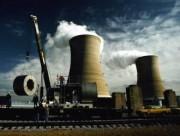
The problem of nuclear power plant construction in Astravets will become increasingly tense in Belarus-Lithuania relations.
Such opinion in the talk with EuroBelarus Information Service shared Andrei Yahorau, political scientist and the head of the Centre for European Transformation.
Let us recall that Lithuanian Environmental Minister Valentinas Mazuronis and Lithuanian Foreign Ministry Linas Linkevičius criticized the actions of Belarusan side, which is going to hold public hearings for Lithuanians on the issue of the Astravets’ nuclear power plant’s environmental impact. Andrei Savinykh, the spokesman of the Foreign Ministry, and Environmental Ministry had their critical say in response.
— It looks like the problem of NPP construction acquires great political importance, as for now there are three projects in one region which are competing at the same time: Kaliningrad NPP, the project of new NPP in Lithuania Belarusan NNP in Astravets.
— The amount of produced energy seems to be redundant for one region; that is why many countries start building electric power plants, providing for the possibility to export electricity. It is but natural that this problem becomes increasingly important in politics.
On the other hand, it is also a question of safety. I think that the reason why Lithuania is worried about the construction of NPP in Belarus is because it doesn’t have enough guarantees of transparency and ecologic safety of such project. Neither Belarusan ecologic activists, nor foreign citizens can get full data about the environmental impact of the NPP. Besides, Belarus hasn’t adopted a number of EU standards in regard to nuclear power plants, while the building is going on. All this acquires complicated political importance. However, I don’t think that it can result in a war between Lithuanian and Belarusan Foreign Ministries; though the problem of nuclear power plant construction in Astravets will become increasingly tense.
— Is there any risk that Belarusan authorities will put the problem of nuclear safety up for political bargaining?
— Yes, it is a complicated game, as not only interests of Belarus, but Russian interests are involved, too, as Russia gave a loan to build NPP. It won’t be easy for Belarus to speculate on this problem, as it not exclusively a Belarusan deal.
— Can the question of nuclear power plants be somehow connected with the issues of political economic cooperation and participation in programs, initiated by the EU?
— As the building of NPPs are touching upon such problems, as regional and energetic safety, it is already becoming the topic for discussion within the “Eastern Partnership” framework. The schedule for this program includes negotiations on the issue of introducing European standards to the nuclear power engineering, alternative energetics, and introducing stress-tests for NPP, which Belarus hasn’t adopted yet. And, of course, it cannot but worry the EU as Belarus’ closest neighbor.
— Can the EU suggest its own alternative to the nuclear power plant in Astravets?
— It is hard to say, as a lot will depend on what kind of help will Belarus get. One of the Eastern Partnership’s priorities is the dialog about the energetic problems, energy transit, etc. And European Union has its suggestions there; however, it also has its own interests concerning energy safety and safety of energy resources.
This issue is extremely politicized and there are lots of pitfalls here, which are hard to handle without special research. And we have too little understanding of what Belarus needs both in terms of energy safety as the regional context of cooperation, mutual dependence between the countries on the side of energy supplies, distribution of energy resources and so on.
Others
-
In Belarus, a rising fear: Will we be the next Ukraine?
The relationship between Russia and Belarus has never been an easy one. The two former Soviet republics have spent the last two decades on a roller coaster ride — sometimes allies, sometimes adversaries in heated public rows.
-
The EU’s Benign Neglect of Eastern Europe
Between November 6 and December 11, 2015, Carnegie Europe continued its Capitals Series. In this second phase, the focus was on the EU’s Eastern neighbors, which the bloc has so often zigzagged over in trying to establish a coherent policy toward them collectively or bilaterally.
-
New ENP and Civil Society’s Role in Focus of the 7th EaP CSF Annual Assembly (Photo)
The 7th Annual Assembly of the Eastern Partnership Civil Society Forum was held in Kyiv on 19-21 November attracting around 300 participants, observers and guests who attended more than 20 sessions and a Networking Fair in the framework of the Assembly.
-
Is social economy a phenomenon for Belarus?
The conference “Social economy: how to be successful despite the crisis” launched in Minsk on October 22.

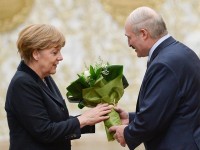
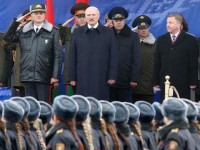
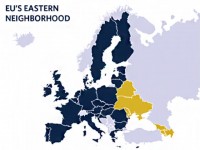
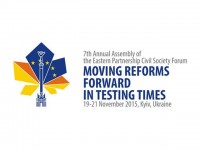
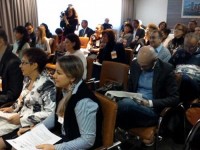


Comments
From farewell to a new Eastern policy and towards a new development
Poland and Germany were both initiators and drivers of a New Eastern policy linked to the Eastern neighborhood and Russia/Soviet Union.